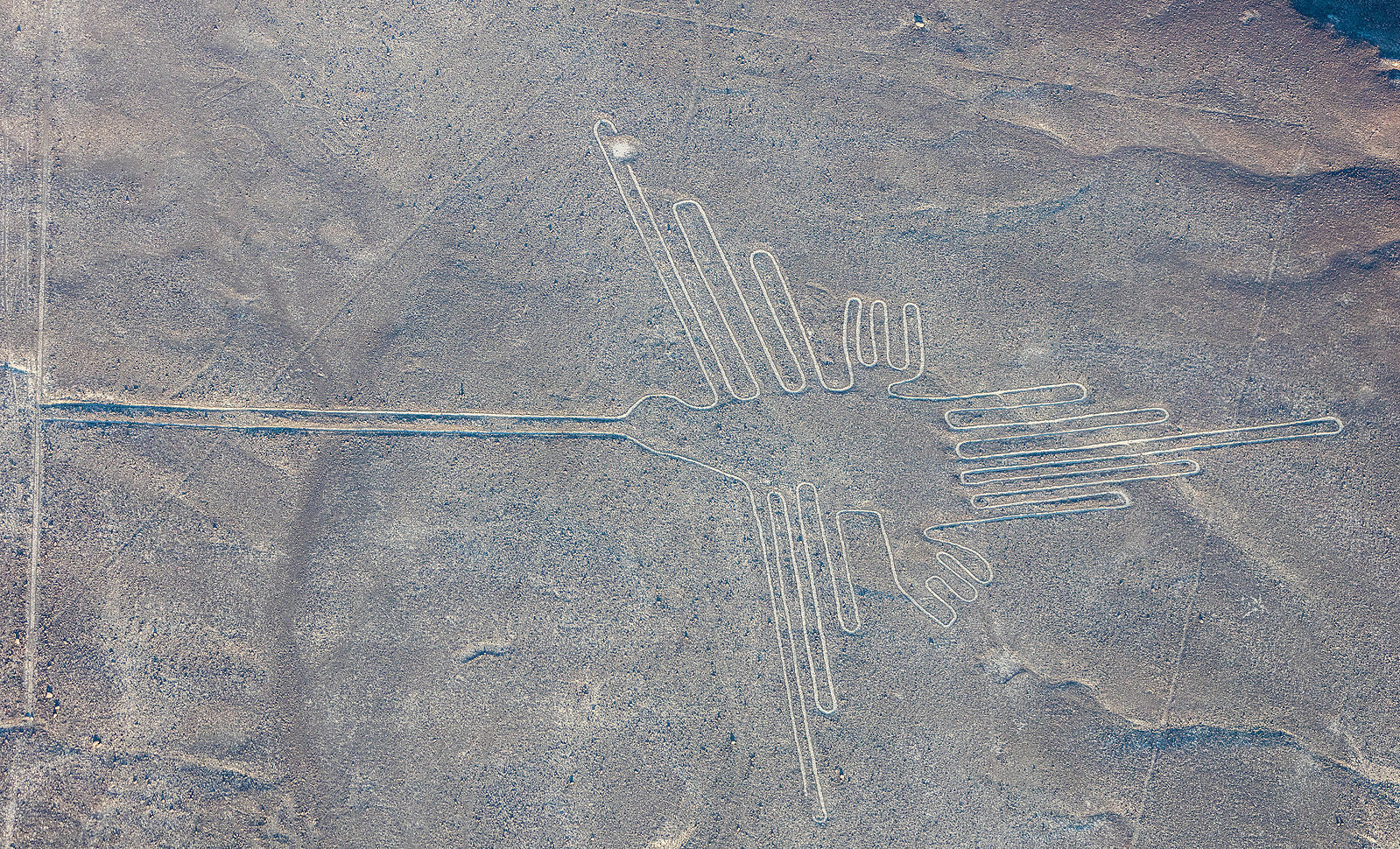
In an earlier post I wrote about Star Axis, a land art form designed by artist Charles Ross. One of its main elements is an 11-story high Solar Pyramid, which marks the daily and seasonal movements of the sun across a Shadow Field. It’s not only a naked-eye astronomical observatory, it’s a work of art — on an immense scale.
This cast my mind back to the late 1980s, when I was lucky enough to visit Peru for the first time. My trek included the Sechura Desert, also known as the Nazca Desert, about 250 miles southeast of Lima. The Nazca Desert is home to many thousands of land art forms — massive geoglyphs carved into the earth of the arid plateau.
These are the Nazca Lines.
Many of the lines form simple geometric patterns. However, around a hundred or so feature immense stylized images of animals and plants, including a monkey, spider, condor, and hummingbird. The largest of these figures is about 600 ft across.
Archeologists believe the figures were carved into the desert by the Nazca culture, dating from 500 BCE to 500 BE. The purpose of the geoglyphs is still debated today; theories include: astronomical observatory and calendar, fertility symbols and religious rituals.
Interestingly enough, many can only be best appreciated from the air — and that’s where they become works of art. This extraordinary art gallery is now preserved as a UNESCO World Heritage site.
Image: Hummingbird, Nazca Lines, Nazca, Peru. Courtesy: Diego Delso, Wikimedia Commons, License CC-BY-SA 4.0.
